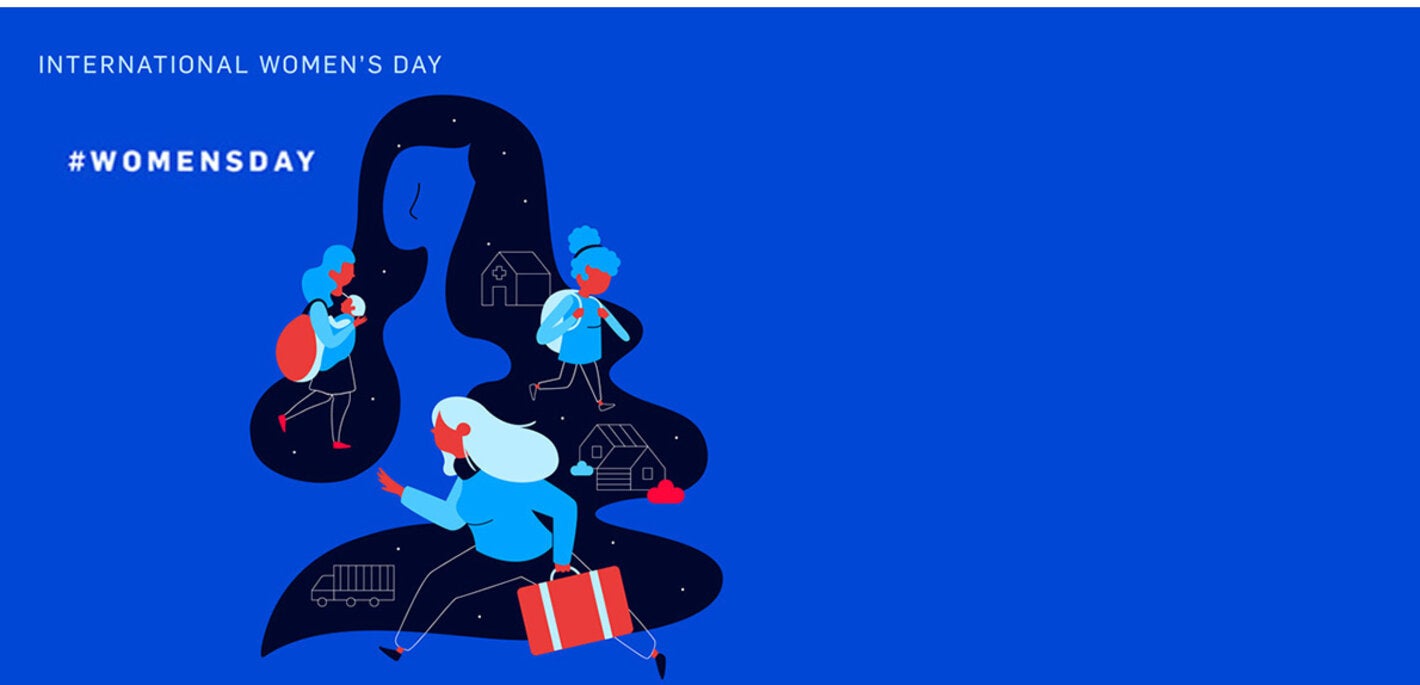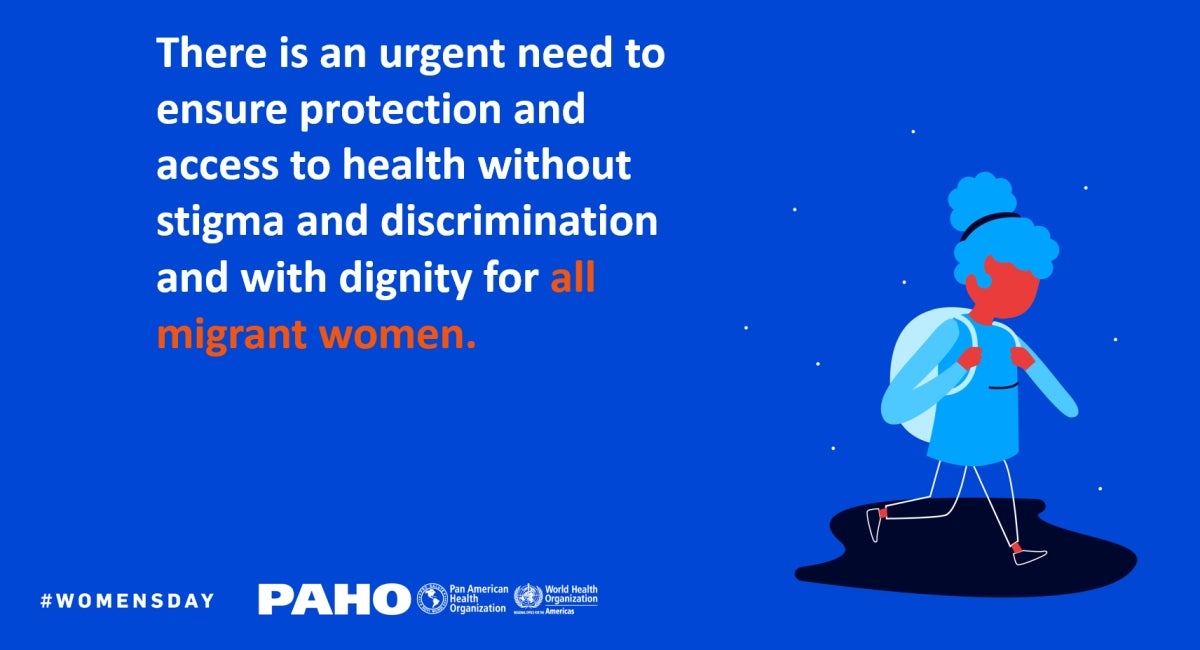
Washington D.C. 8 March 2019 (PAHO/WHO)—Access to family planning and prenatal care, intimate partner violence and adolescent health are some of the main challenges migrant women face in the Americas, experts agreed during a panel held by the Pan American Health Organization's (PAHO) headquarters in Washington, D.C. to commemorate International Women's Day 2019.
“Policies and resolutions to protect access to health, maternal health and the health of migrants, already exist, but “many countries struggle to ensure these things for general populations, let alone migrant populations”, and not enough resources are being mobilized, said PAHO Director, Carissa F. Etienne.
Dr Etienne also emphasized that the current migratory waves in the Region are not short-term so “it is not just about dealing with a crisis. We need programs that address these issues on a long-term basis,” she said, calling for “a coherent approach that addresses the combination of gender inequalities and other barriers to health.”
The panel focused on discussing the most pressing health needs of migrant women and exploring ways these might be met, and convened experts from PAHO, as well as Carmen Moreno from the Interamerican Commission on Women, and Claudia Palacios, a Colombian journalist whose work has focused on issues related to migration in the Region.

In 2017, of 258 million international migrants worldwide, 38 million were from Latin America and the Caribbean. There are increasingly more women amongst these migrant populations, highlighting the urgent need to eliminate barriers to access for health for women, and to provide protection for this population, particularly from violence and abuse, during the migratory process.
“Migration puts new strains on what are already fragile social safety nets in many countries,” said Dr. Etienne. “At the same time, it exacerbates many underlying socioeconomic disadvantages that women already face, for example, with respect to living and working conditions, legal status; discrimination, disempowerment and exclusion,” she added.
For Claudia Palacios, who has reported from areas with high populations of migrant women, some of the most vulnerable migrant women are those that require sexual and reproductive health services or prenatal care. While emergency care, such as childbirth, can be accessed, “these women are unable to go for routine pregnancy checks because they do not have the relevant legal documentation,” she urged. She also highlighted that many pregnant women arrive in a host country with pregnancy complications due to conditions in their own countries, or that have been acquired during the journey itself. This presents an even bigger risk for mother and child when a woman is then unable to access prenatal care upon arrival.
“Addressing the needs of migrant women requires an approach that looks at the root causes of the issues associated with disorganized migration,” she said. “This is the only way we can ensure that in years to come, this phenomenon will go from being a huge challenge to a development opportunity.
Carmen Moreno, Executive Secretary at the Interamerican Commission on Women, highlighted that when discussing the issue of migrant women’s health, it is important to take into consideration the underlying drivers of migration, including both voluntary and involuntary migration. “We need to better support migrant women in exercising their human rights,” she said
In order to tackle the issues faced by migrant women when attempting to access health services in host countries, Moreno called for political will to create health and migration policies that protect migrants. “There is a clear responsibility on both host countries and countries of transit to provide migrants with health care services,” she said. Migrant women contribute significantly to formal and informal economies, yet there is little data on their specific social protection needs in health.
International Women’s Day 2019
International Women’s Day is held every year on the 8 March to raise awareness of the issues impacting women all over the world. The day has been recognized as the United Nation’s Day for women’s rights and world peace since 1975.



